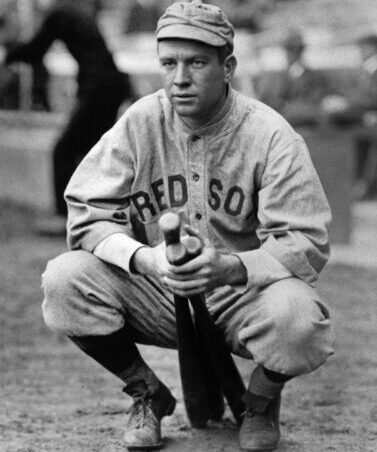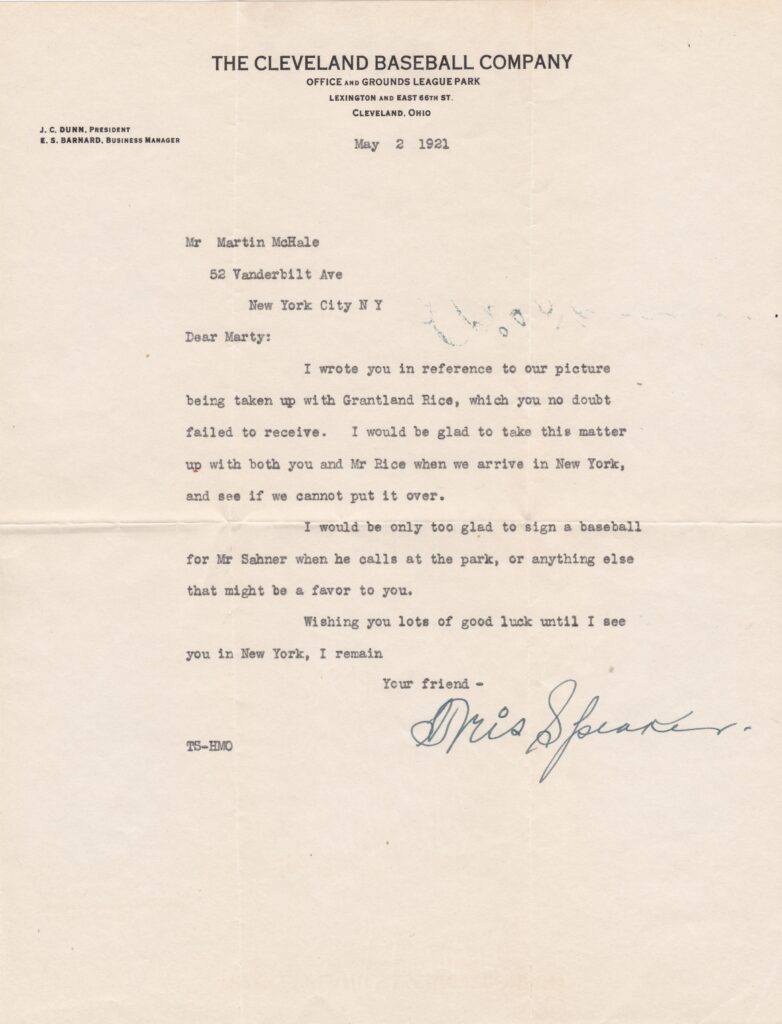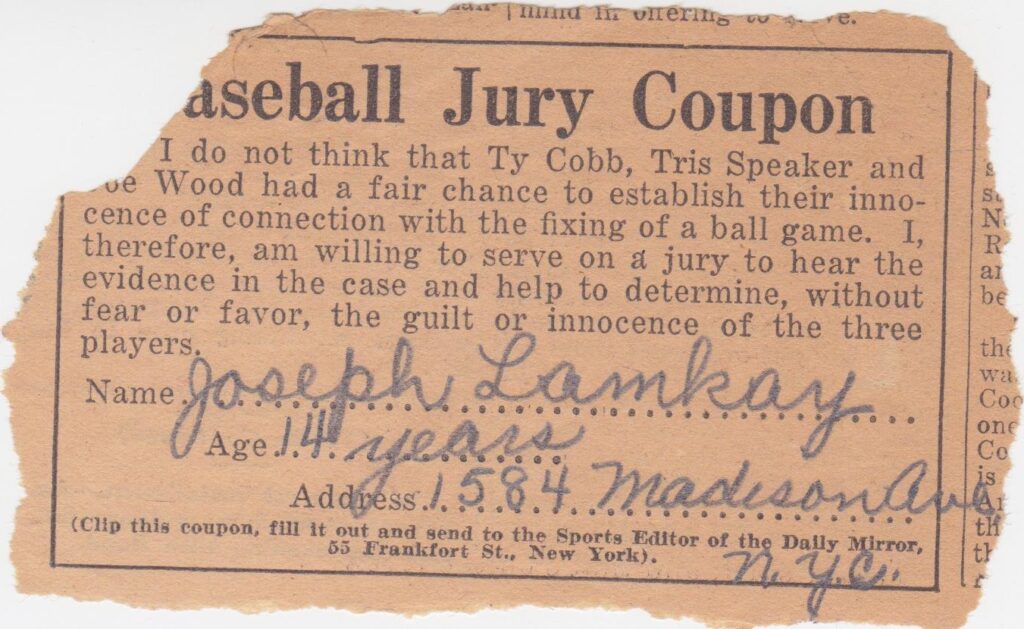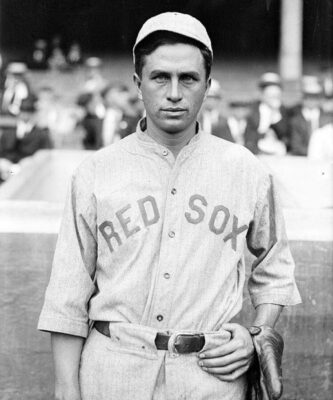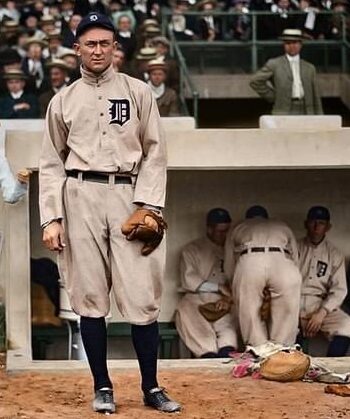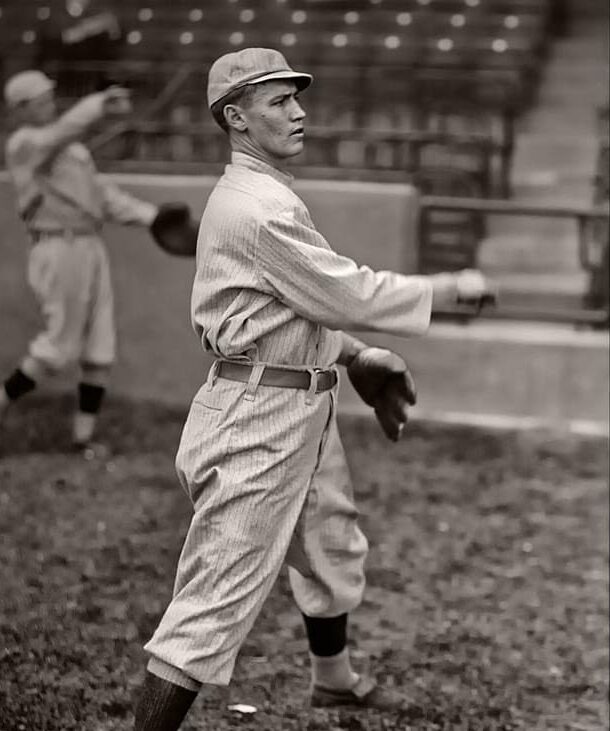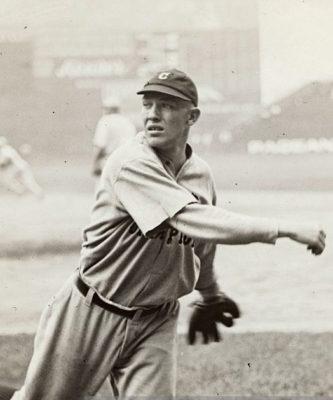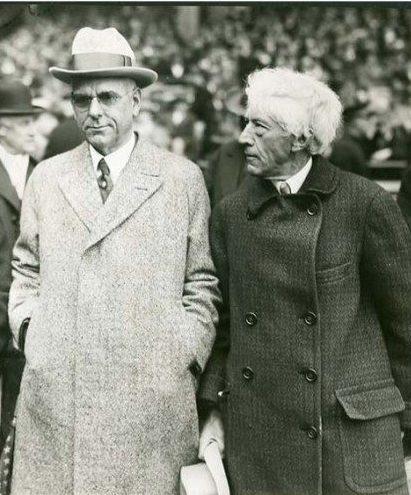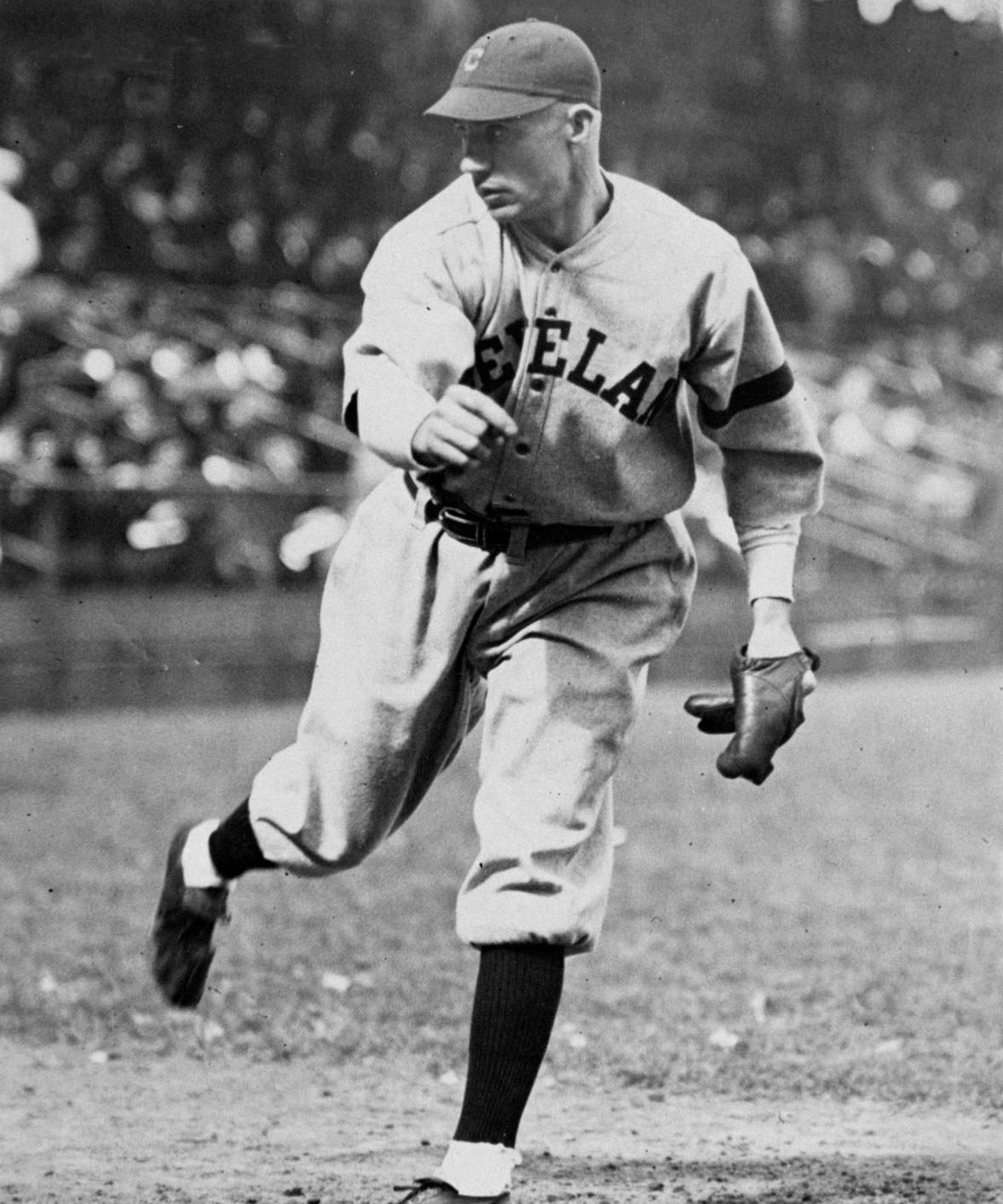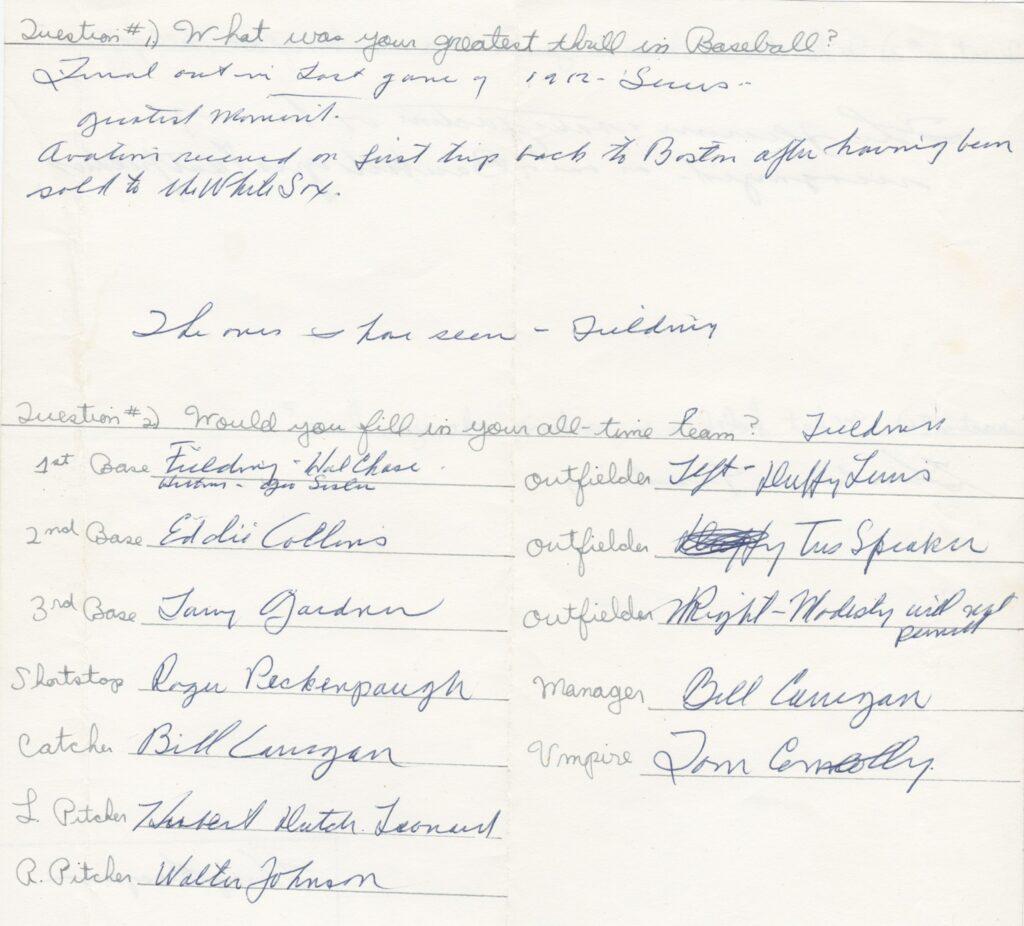
Tris Speaker is considered one of the finest-fielding center fielders in the history of the game. From 1910 through 1915 he was part of the “Golden Outfield” along with Harry Hooper and Duffy Lewis. The three of them were without question the best defensive outfield trio of their day, and perhaps ever.
In the collection is this letter – one page of a four-page response – from Harry Hooper. In it, Hooper identifies his all-time team. Hooper selects Speaker as his choice in center and Lewis as his choice in right.
Speaker was a dominant player of his era and maybe any era. Playing shallow with the glove allowed Speaker to take away what would otherwise be routine base hits. His speed, reads, and routes allowed him to retreat and cover ground behind him. Speaker led the league in double plays by an outfielder 10 times and was in the top-10 in the league nineteen time in his career.
His 145 double plays as an outfielder are first all time by a wide margin. Second and third on the list are Ty Cobb and Willie Mays with 74 and 59 respectively.
At the plate Speaker was the only player to interrupt Cobb’s run of 12 batting championships in 13 years, hitting .345 for his career and setting a still-standing mark of 792 doubles. Only 6 men – Hank Aaron, Cobb, Willie Mays, Babe Ruth, and Barry Bonds – have a higher career WAR.
He was a rare star who won in multiple cities. After earning two rings in Boston, Speaker completed his trifecta in Cleveland as player-manager, hitting .388 with a league-leading 50 doubles in giving the Indians franchise their first World Series title.
From there Hooper’s outfield choices are more dubious. In left field he picks Duffy Lewis, a 12-year big leaguer with a .284 career average with a .333 on-base percentage. With his two Red Sox teammates – Speaker and Lewis – already penciled in as his all-time outfield, Hooper could not resist making his choice for fight field clear, writing in the space for the selection, “Modesty will not permit”.
This question is just one of eight that Hooper replied to in answering a fan’s baseball queries. The others regarding how he wants to be remembered, what it means to be in Cooperstown, and his thoughts on the Black Sox scandal can be seen by clicking here.
